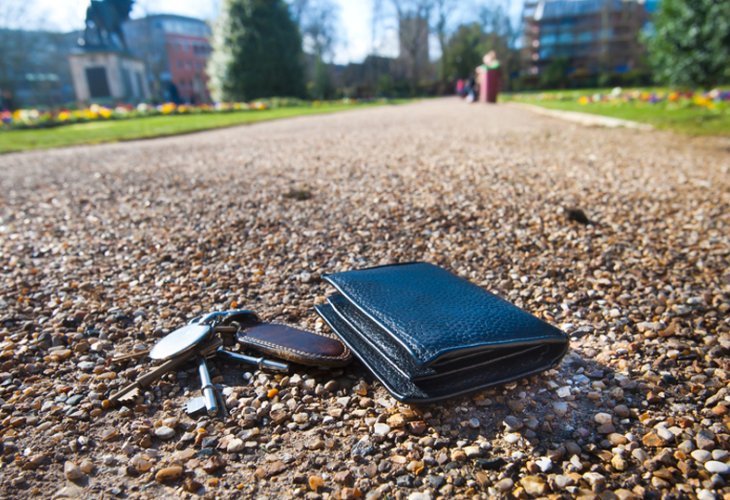Jewish Law
The Mitzvah of Returning Lost Property: Lessons in Honesty from the Torah and Our Sages
Exploring the Torah commandment of hashavat aveidah, its moral purpose, rabbinic stories, and how Jewish law applies this mitzvah in the modern world

The Torah states (Devarim 22:1–3): “You shall not see your brother’s ox or sheep straying and hide yourself from them; you shall surely return them to your brother. And if your brother is not near you, or you do not know him, then you shall bring it into your house, and it shall remain with you until your brother seeks it, and you shall restore it to him. And so shall you do with his donkey, and so shall you do with his garment, and so shall you do with anything that your brother has lost and you have found; you may not hide yourself.”
These verses describe the mitzvah of hashavat aveidah — the commandment to return lost property. This mitzvah includes two Torah obligations: one positive (mitzvat aseh) and one negative (mitzvat lo ta’aseh), as explained by Rambam (Maimonides):
Positive Commandment:
“The commandment we are commanded to return lost property to its owner, as it says: ‘You shall surely return them to your brother.’” (Sefer HaMitzvot, Aseh 204)Negative Commandment:
“The prohibition forbidding us to ignore a lost item, but rather to take it and return it to its owner, as it says: ‘You may not hide yourself.’” (Sefer HaMitzvot, Lo Ta’aseh 206)
The Purpose and Moral Foundation of Returning Lost Property
The Sefer HaChinuch (Mitzvah 538) explains the reason for this mitzvah: “This commandment benefits the entire community and promotes social harmony. Forgetfulness is common among people, and their animals frequently wander. Thanks to this mitzvah, our possessions and animals will remain safe wherever they are — as though they were under their owner’s hand. Indeed, ‘The precepts of the Lord are right, rejoicing the heart’ (Tehillim 19:9).”
Stories from the Sages: The Great Care for Lost Property
1. Rabbi Chanina ben Dosa and the Chickens
A man once passed by Rabbi Chanina ben Dosa’s home and accidentally left some chickens there. Rabbi Chanina’s wife found them, and he told her not to eat their eggs. The chickens multiplied and caused a nuisance, so they sold them and bought goats with the proceeds. Later, the original owner passed by and said, “This is where I lost my chickens.” Rabbi Chanina asked for identifying signs; when the man gave them correctly, Rabbi Chanina returned to him the chickens as well as the goats (Taanit 25a).
2. Rabbi Shmuel bar Susartei and the Queen’s Jewel
Once, Rabbi Shmuel bar Susartei traveled to Rome, where the queen had lost a valuable jewel. She proclaimed: “Whoever returns it within thirty days will be rewarded; whoever returns it afterward will be executed.” Rabbi Shmuel found the jewel but waited until after thirty days to return it.
When the queen demanded an explanation, he replied: “I heard your decree, but I delayed so that you would not think I returned it out of fear — but because my God commands me to return lost property.” Astonished, the queen declared, “Blessed be the God of Israel!” (Jerusalem Talmud, Bava Metzia 2:5; Yalkut Me’am Loez, Devarim, vol. 3, p. 845).
3. Rabbi Shimon ben Shetach and the Jewelled Donkey
Rabbi Shimon ben Shetach once purchased a donkey from an Arab merchant. His students found a precious jewel tied around its neck and rejoiced, quoting Mishlei 10:22: “The blessing of the Lord brings wealth.” Rabbi Shimon replied: “I bought a donkey, not a jewel.” He returned the jewel to the Arab, who exclaimed, “Blessed be the God of Shimon ben Shetach!” (Devarim Rabbah, Parashat Eikev).
Returning Lost Items in Ancient Jerusalem
During the time of the Second Temple, Jerusalem had a special public service for lost and found property: “There was a stone called the Even To’en (Claimant’s Stone) in Jerusalem. Whoever lost an item would go there; one person would announce the loss, and another would come forward to give identifying signs and reclaim it.” (Bava Metzia 28b)
Modern Halachic Ruling: Returning Lost Items Today
Rabbi Aharon Zakai provides practical guidance for our times: “If someone finds a lost object and does not know who the owner is, in a place where the accepted practice is to deliver lost property to the police — since people who lose items go there to claim them, one should hand the item to the police, so that it can be returned to the rightful owner upon presenting identifying signs.” (HaBayit HaYehudi, section ‘Tzedek uMishpat,’ Hilchot Aveidah uMetziah, siman 12:2)
The mitzvah of returning lost property reflects the Torah’s deep concern for social trust, honesty, and mutual responsibility. From biblical law to rabbinic stories, the message is timeless: We are not allowed to “look away.” Each act of integrity restores faith between people, and sanctifies God’s name in the world.

